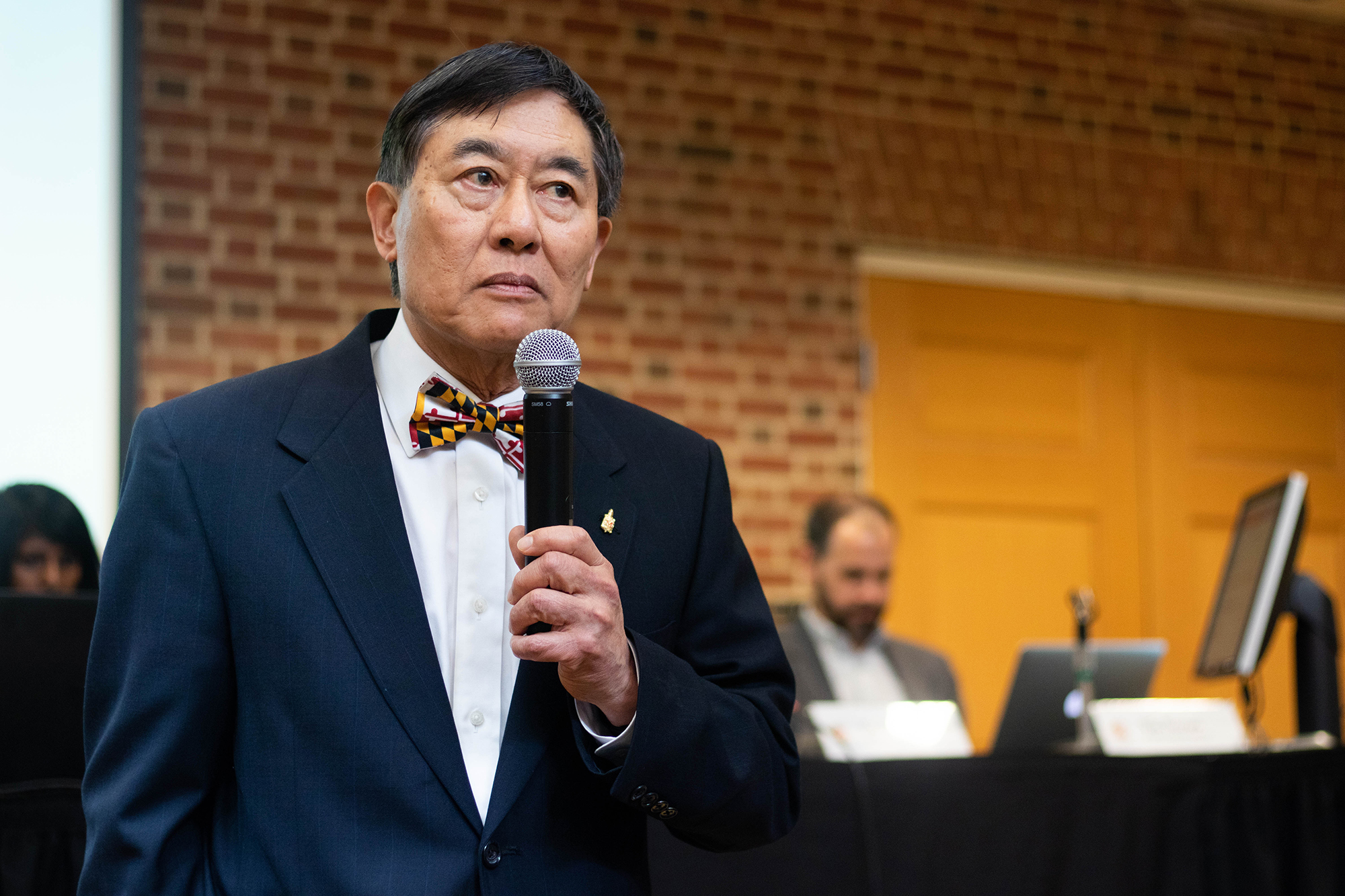University of Maryland President Wallace Loh criticized the inclusion of live hearings and cross-examination in the finalized Title IX regulations released Wednesday by U.S. Education Secretary Betsy DeVos.
The new regulations, which set how colleges should handle sexual misconduct allegations, go into effect in August. DeVos originally proposed updates to the regulations, which replace Obama-era guidelines, in late 2018, prompting condemnation from this university’s Student Government Association and campus activists.
Unlike Obama-era guidelines — which took the form of recommendations in a “Dear Colleague” letter — these regulations are binding. The only way to challenge them is either through a lawsuit or in Congress, putting universities who may disagree “between a rock and a hard place,” Loh said.
“The pendulum swung a bit too far in one direction in 2011 under the Obama ‘Dear Colleague’ [letter] — now the pendulum has swung too far to the other direction,” Loh said.
The new rules allow for the cross examination of the accused and require live hearings — changes that seem unnecessary, Loh said, and could retraumatize survivors without generating any additional information.
“I feel very strongly that no person who’s … a survivor should have to go through a cross-examination that you have in the courtroom,” he said. “These are not criminal cases.”
The process of handling sexual misconduct in schools was designed to allow survivors to pursue academic sanctions instead of criminal ones when the misconduct impeded their access to education.
[Read more: Department of Education releases new Title IX guidelines amid coronavirus closure]
The university’s Office of Civil Rights and Sexual Misconduct also submitted a public comment in 2018 critical of cross-examination and limitations to the university’s jurisdiction — two features the final regulations maintained.
However, the regulations also include more innocuous changes that could help bolster due process for the accused, Loh said. The new guidelines require those accused to be provided a written notice and allows all parties the right to review investigative materials — things this university’s procedures already include.
“There’s a lot that I find unacceptable,” Loh said. “But then there are a whole bunch of things that I can live with.”
Loh also expressed tentative support for a higher standard of evidence allowed under new regulations.
Under Obama-era guidelines, universities were advised to use a certain standard of evidence in misconduct hearings, whereas DeVos’ regulations allow universities to make that choice for themselves. While the “preponderance of evidence” standard — meaning the burden of proof is met when there is more than 50 percent chance that the claim is true — was recommended under the Obama administration, university officials can now choose to require a higher standard.
For lawyers, a preponderance of evidence means the difference of “a feather,” Loh said. He wonders if it’s high enough. On his first day of law school, Loh said he remembers learning a quote from U.S. Supreme Court Justice Oliver Wendell Holmes, who said that it is better to let ten guilty men go free than to convict one innocent person.
While not everyone agrees with that outlook, it’s still a fundamental value that might merit a higher standard, he said.
“It’s I think important … to always view these very complex issues … in its totality — not to focus on just one item,” Loh said. “I could live with a preponderance of the evidence standard, if there are other safeguards that are built in.”
[Read more: UMD campus advocates worry about emotional impact of virtual sexual misconduct hearings]



